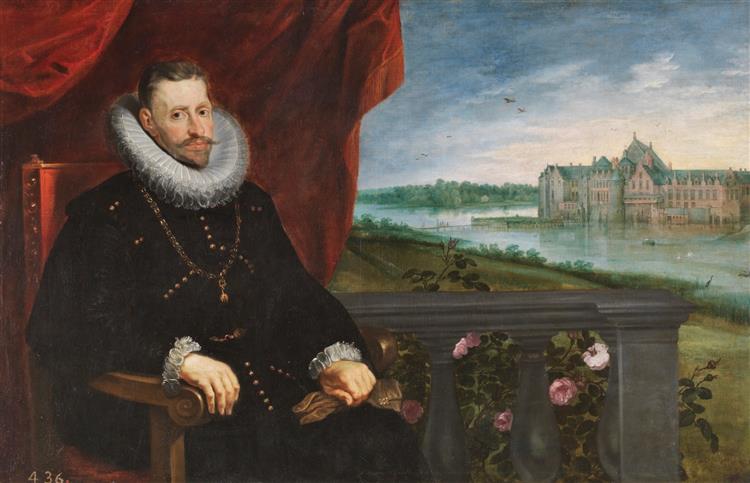Descrição
The work “Archduke Albert of Austria”, painted by Peter Paul Rubens in 1615, is a portrait that embodies the artist’s mastery in the representation of human figures and his ability to capture not only the appearance, but also the essence of his subjects. Albert of Austria, known for his role as governor of the Spanish Netherlands and as an important political figure of his time, is the protagonist of this composition that reflects the wealth and power of the European nobility of the 17th century.
Rubens, a man of his time and an absolute master of the Baroque, imbues the painting with a vibrant energy and sense of movement that are characteristic of his style. The figure of the Archduke is presented in a grand manner, occupying almost the entire space of the canvas. His pose, erect and authoritative, suggests a calm dominance, while his direct and determined gaze invites the viewer to contemplate not only his physical figure, but also his character. Rubens' choice to show Albert dressed in elaborate armour and a rich cloak, in deep, dark tones, symbolises both his military position and his social status.
The composition is arranged so that the elements of the costume and armour reflect meticulous attention to detail. The contrast between the lustre of the metal of the armour and the opulence of the cloak results in a visual harmony that draws the eye and underlines the magnificence of the figure. Rubens uses a colour palette that oscillates between earthy and golden tones, creating a luminous effect that highlights not only the archduke, but also establishes a strong sense of space surrounding the figure, bringing depth to the work.
A significant aspect of this painting is its symbolism. The armour is not just a garment; it is a statement about Albert's military leadership, while the presence of ornamentation and detailing on the cloak alludes to his wealth and political power. Although the work focuses on the figure of the archduke, the dark background highlights his figure, creating a dramatic effect that is essential to the art of Rubens, known for his ability to evoke intense emotions through light and shadow.
James Hall characterises Rubens’ art as “extroverted”, and this work is a clear example of this statement. The vitality of the figure, the richness of the textures and a sense of grandeur are elements that resonate throughout his entire output. Through this portrait, Rubens not only presents Albert of Austria as a remarkable individual, but also brings to life a broader narrative about Europe’s politics and cultural heritage in a period of significant struggle and change.
It is interesting to note that Rubens did not only dedicate himself to portraits, but also delved into great mythological and religious themes. However, his skill in capturing the humanity of his subjects stands out in works such as this one. The interaction between the subject and the viewer becomes a dialogue where the archduke's gaze seems to transcend the canvas, uniting the past with the present in a visual conversation that defies the passage of time.
“Archduke Albert of Austria” is not only a representation of power, but also a work that encapsulates Rubens’ technical mastery and his deep understanding of the human condition, reflecting the complexity of the underlying themes in the lives of the powerful figures of his time. Thus, this painting stands as a fundamental piece to understand the intersection between art, history and the interpretation of a world in transformation. The work invites reflection, not only on the figure of the archduke, but also on the legacy that great portraits have left in the history of art.
KUADROS ©, a famous painting on your wall.
Hand-made oil painting reproductions, with the quality of professional artists and the distinctive seal of KUADROS ©.
Painting reproduction service with satisfaction guarantee. If you are not completely satisfied with the replica of your painting, we will refund 100% of your money.

